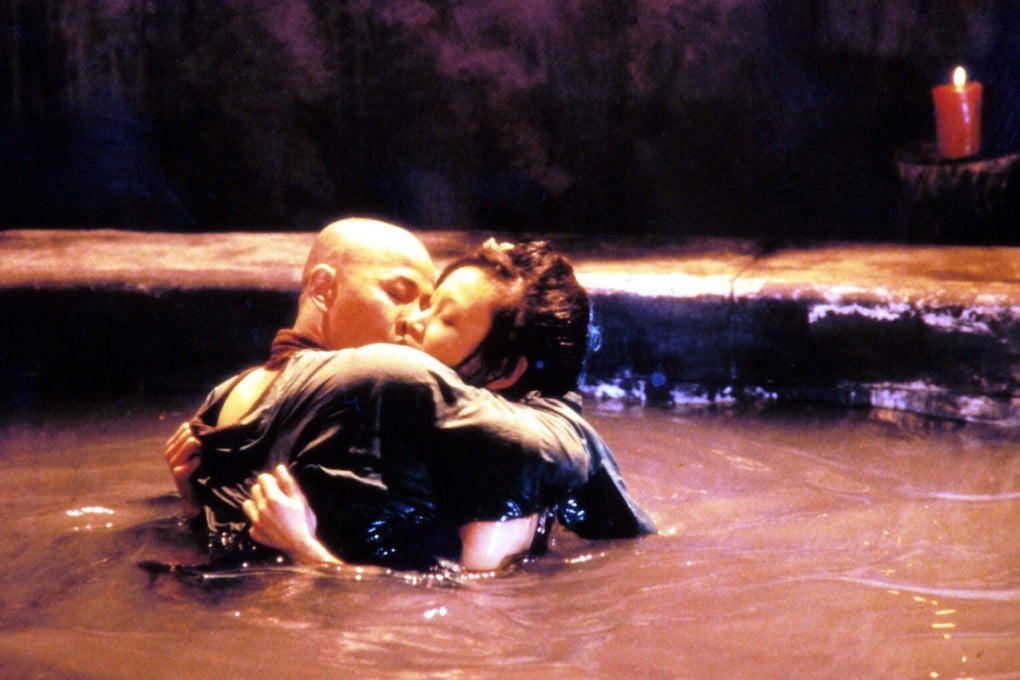When Joan Chen was persuaded to shave her head to play an assassin in Hong Kong martial arts film Temptation of a Monk
- Filmmaker Clara Law convinced actress she would look good with no hair in her 1993 film about a Tang dynasty general who murders a prince and repents
- In an interview at film’s premiere, Law, asked about its monumental landscapes, said she wanted to convey the idea that the people and the landscape are one

Temptation of a Monk, a little seen 1993 film by Hong Kong “Second Wave” director Clara Law Cheuk-yiu is part martial arts movie, part historical drama, and part Buddhist film.
Set during the Tang dynasty, it draws on the samurai films of Japan’s Akira Kurosawa to tell a philosophical tale of a general who gradually finds spiritual redemption after seeking refuge from his enemies in a Buddhist temple.
The film features some rough-and-ready fight scenes which, although they sometimes showcase acrobatic displays, are generally rooted in a grungy and bloody reality.
The story is loosely based on a real-life assassination called the Xuanwu Gate Incident, which took place in AD626. It centres on the fictional General Shi (Taiwanese actor Wu Hsing-kuo), who is drawn into a plot to murder the crown prince he is assigned to guard.
After the assassination, a repentant Shi flees with a small cohort of men. Unable to come to terms with his betrayal, Shi becomes destructive and sick of the world until a gradual conversion to Buddhism takes place.